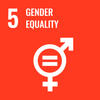
Low Smoke Cookstoves - Darfur, Sudan
This award-winning Gold Standard cleaner cookstoves offsetting project is the first registered carbon credit project in Sudan and the first to be developed in a conflict zone. It is reducing emissions whilst helping families to breathe cleaner indoor air.
Project Summary
The project was developed to improve household health by replacing traditional cooking methods – burning wood and charcoal inside the home – with low smoke LPG stoves.
26.1 million people in Sudan do not have access to clean cooking and are reliant on biomass for cooking fuel. In addition to this, burning wood releases large amounts of particulates, carbon monoxide and other pollutants. Traditionally, women cook on open fires inside their homes. Consequently, health issues related to indoor air pollution in Sudan kill more people than Malaria, Tuberculosis and HIV combined.
This carbon offsetting project works to reduce the damaging impacts of both deforestation and indoor smoke to improve the environment of Sudan and the well-being of many Sudanese families.
The Results
Almost 100% of families using the new cookstoves delivered by the project state that indoor air quality has greatly improved.
Each stove installed in a household in Darfur saves 4.5 tCO₂e – equivalent to one passenger flying 3 times between London and New York.
The Global Alliance for Clean Cookstoves states that cooking with efficient low smoke LPG reduces most key pollutants by over 95% and reduces energy consumption by 50-70%.
100% of households have reported decreases in energy expenditure.
26% of women are starting new income generating activities, with a further 8% expanding existing activities with the time saved no longer having to collect wood.
58% of women said they had more time to spend with their children.
48% of women surveyed said their husbands have even showed more interest in the cooking with the new stoves.
Supporting the UN Sustainable Development Goals
The Sustainable Development Goals (SDGs) were established by United Nations as a universal call to action to end poverty, protect the planet and ensure all people enjoy peace and prosperity. There are 17 goals in total and this project is aligned to the following SDG goals.
SDG 3: Ensure healthy lives and promote well-being for all.
The World Health Organisation (WHO) estimates that smoke inhalation from traditional wood burning stoves is equal to smoking 2 packs of cigarettes a day. Beneficiaries enjoy better indoor air quality, which reduces respiratory diseases.
SDG 5: Achieve gender equality and empower women and girls
The implementation of this project has drastically reduced the amount of time women spend collecting wood and improved their health. It also provides opportunities for female employment as the project directly employs local women. e.g, to help undertake the project surveys.
SDG 7: Ensure access to affordable, reliable, sustainable and modern energy
The stoves are made affordable to families via micro-finance loans, managed by the women-led Development Association Network. The stoves are also more efficient and affordable for families to run.
SDG13: Take urgent action to combat climate change
LPG has lower greenhouse gas emissions than any other fossil fuel with 50% fewer carbon emissions than coal and 20% less than heating oil. The project has saved 232,000 tCO₂e to date.




